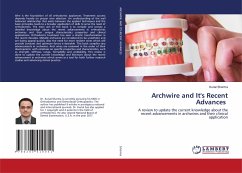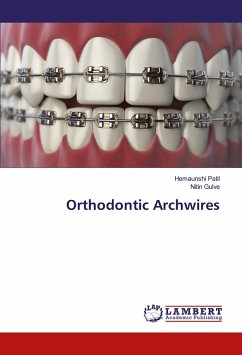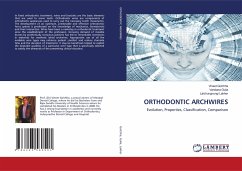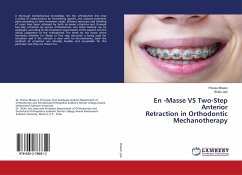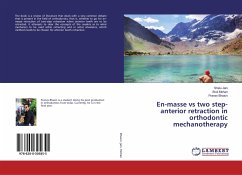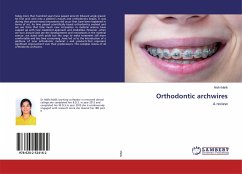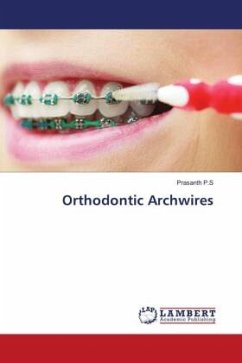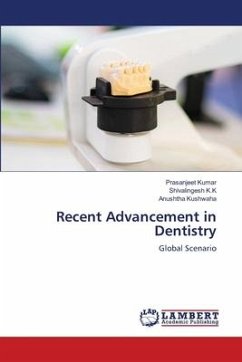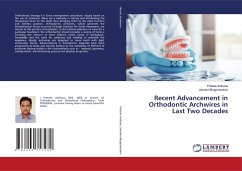
Recent Advancement in Orthodontic Archwires in Last Two Decades
Versandkostenfrei!
Versandfertig in 6-10 Tagen
51,99 €
inkl. MwSt.

PAYBACK Punkte
26 °P sammeln!
Orthodontic therapy is a force management procedure, largely based on the use of archwires. Wires are a mainstay in storing and distributing the therapeutic force to the teeth thus bringing them to the ideal function and esthetic position. Orthodontic archwires, which generate the biomechanical forces occurred through brackets for tooth movement, are central to the practice of profession. In the rational selection of wires for a particular treatment, the orthodontist should consider a variety of factors, including the amount of force delivery, elastic range or springback, formability and the n...
Orthodontic therapy is a force management procedure, largely based on the use of archwires. Wires are a mainstay in storing and distributing the therapeutic force to the teeth thus bringing them to the ideal function and esthetic position. Orthodontic archwires, which generate the biomechanical forces occurred through brackets for tooth movement, are central to the practice of profession. In the rational selection of wires for a particular treatment, the orthodontist should consider a variety of factors, including the amount of force delivery, elastic range or springback, formability and the need for soldering and welding to assemble the appliance. Ideally, archwires are designed to move teeth with light continuous forces. Advancements in orthodontic materials have been progressing by leaps and bounds leading to the availability of Plethora of archwires varying widely in the characteristics such as - material, geometry, configuration, manufacturing process and physical properties.




